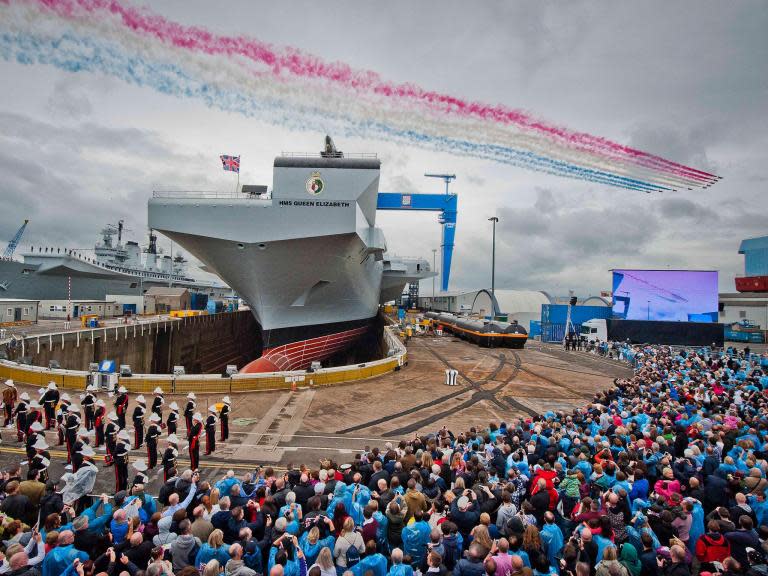HMQ Queen Elizabeth: Britain’s largest warship could be at risk of cyber attack
The HMS Queen Elizabeth, Britain’s most powerful warship, is reportedly using computers running the same operating system that was hit by a cyber attack earlier this year.
The 280-metre, 65,000-tonne aircraft carrier set sail for the first time this week, after its construction had been struck by delays and issues over costs.
The vessel will reportedly sail with a team of cyber specialists on board. But during a tour of the ship computer screens were reportedly seen displaying Microsoft’s outdated Windows XP operating system.
The operating system was severely affected during the WannaCry ransomeware attack that paralysed NHS computers and spread chaos across global networks.
Mark Deller, commander air on the warship,said “there has been a very stringent procurement chain that has ensured we are less susceptible to cyber than most”.
“I would say compared to the NHS buying computers off the shelf, I would think we are probably better than that. If you think more Nasa and less NHS you are probably in the right place,” he added.
But Alan Woodward, professor of computing at the University of Surrey told The Times that if the Windows XP system has been installed for operational use, “it is extremely risky”.
“Why would you put an obsolete system in a new vessel that has a lifetime of decades?” he added.
Defence Secretary Sir Michael Fallon has insisted the warship is not vulnerable to cyber attacks, telling BBC Radio 4’s Today programme: “It’s not the system itself, of course, that’s vulnerable, it’s the security that surrounds it.
“I want to reassure you about Queen Elizabeth, the security around its computer system is properly protected and we don’t have any vulnerability on that particular score.”
The £3 billion behemoth, which is set to be the nation's future flagship, and her 700-strong ship's company are heading to the North Sea for maiden sea trials over the summer.
Additional reporting by Press Association

 Yahoo News
Yahoo News 

